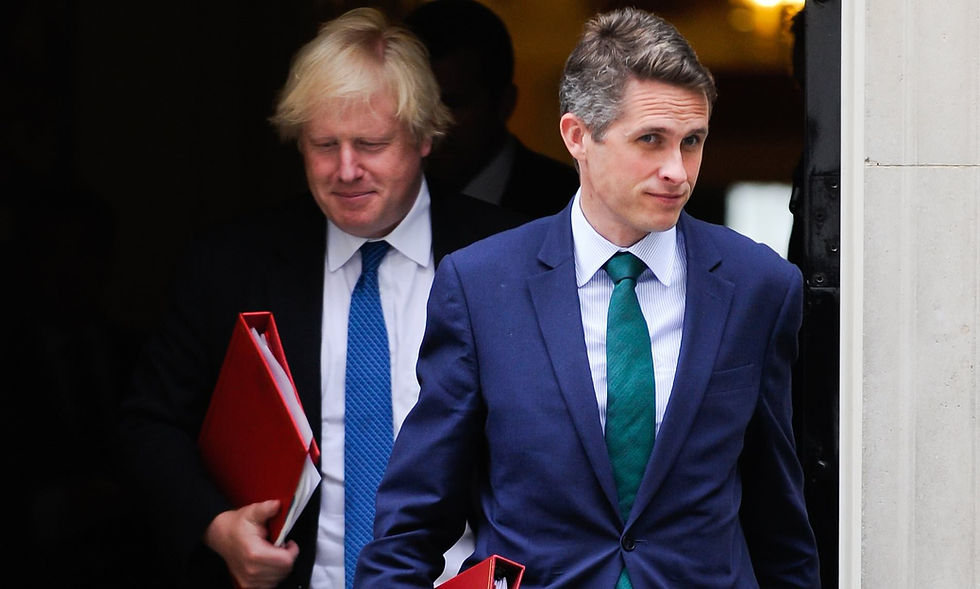British politics - the cold, hard truth
- benpawlowski
- Aug 21, 2020
- 5 min read

I have a confession to make. On the 12th December 2019, the date of the fourth general election of the decade, I wanted the Conservatives to win. Why? To be frank, like many, I was tired and fed up of Brexit; Parliament's deadlock, the "dither and delay", the constant regurgitation of news about talks starting, stalling and then breaking down. Boris Johnson's strong Brexit rhetoric, accompanied by new-founded Tory party unity, seemed an appealing pathway away from the dirty mess of David Cameron's resignation and Theresa May's diabolical three year stint in Downing Street. Beyond Brexit, Johnson seemed to represent the lesser of two evils, if you will. The Labour Party, under Jeremy Corbyn, were unattractive and, truth be told, unelectable. Corbyn is not a bad man - he has key, good-at-heart principles, and sticks by them- however, his manifesto seemed at best a far-flung fantasy, at worst national suicide. His economic policy seemed wild and systemically unsustainable and his position on Brexit unfathomable, whilst he was never able to clean up the stains of anti-Semitism in his party, nor quash attention about his tentative links to terrorist organisations, notably the IRA and Hezbollah. So, when the following day news began to filter through of the Conservatives' "stonking majority", 80 in number, I was happy. I thought, naively perhaps, that this Friday 13th would not be the start of a horror story, but rather something better.
I was wrong.
What has followed in those 8 months since the Tories' overwhelming victory can only be described as the most incompetent, brazen, shameless, downright disgraceful 8 months of governance in UK history. The truth is there is no superlative that can truly quantify the magnitude of the incompetence of this current government. Cock-up after cock-up after cock-up. Johnson and his current cabinet of cockwombles make the dark days of May and Cameron look illuminating and prosperous, which is some achievement considering their respective records. This government is like a 24hr live action version of The Thick of It, but terrifying instead of hysterical. Hugh Abbot has nothing on Robert Jenrick, Pritti Patel or Gavin Williamson, Malcolm Tucker neither on Dominic Cummings.
So, where to start? The government's response to the ongoing Covid-19 pandemic is one area of particular failure - 'herd immunity', PPE shortages, the failure of Track and Trace, the failure of their Coronavirus app, their inability to adequately protect care homes whatsoever. The list of failures is endless and damning. The UK has both the worst excess death rate in Europe, along with the steepest recession (UK GDP fell by a colossal 20.4% between April and June) - the government was unable to save lives nor soften the economic blow of lockdown. In this way, the government has, unequivocally, failed the nation.
The Covid-19 pandemic also provided the context to another embarrassing sub-plot to the government's ineptitude. Dominic Cumming's ill-fated trip to Durham, and subsequently Barnard Castle, demonstrated a number of key faults in this Johnson ministry. Number one - it showed how, essentially, Cummings is the true occupant of 10 Downing Street, thanks to Johnson and his fellow MPs unwillingness to critique or ditch his senior adviser. The fact that an unelected technocrat in the form of Cummings can have such a glaring influence over this current administration is a failure of democracy. Number two - it exposed a critical way of thinking in this government that, like Cummings' role at the heart of Westminster, undermines our democracy. A lack of accountability.
Cummings, despite his ignorance of lockdown rules he himself helped to create, helping perpetuate the old Tory caricature of "one rule for us and another for them", remains Johnson's Chief Adviser. Cummings does not remain alone on the list of prominent Tories who remain in a job despite revealing staggering levels of incompetence and / or ignorance for their roles. Robert Jenrick, the chubby-cheeked Housing Secretary, remains in the cabinet despite his unlawful approval of a luxury flat development on the Isle of Dogs. Jenrick approved the £1 billion development before a new council levy of around £40 million would have been applied to the developer, the Tory-donating former Daily Express owner Richard Desmond. Yet again, no accountability. Gavin Williamson, the Education Secretary, has also escaped a sacking or resignation despite last week's appalling A-level results fiasco, where an algorithm was used to award students with results they 'should' have received, not what they deserved. As well as failing individual students, the algorithm had an inherent tendency to favour smaller cohorts of students and, thus, private schools. Williamson undeservedly remains in a job which, unnervingly, has become a recurring theme over the last 8 months. If a democracy ceases to practice accountability, then it ceases to become a democracy.
Yet, despite all of the above, the Conservatives remain two points ahead of Labour in the polls, according to a YouGov poll on the 19th August. Sir Keir Starmer, in his so-far brief stint as Labour leader, appears to have exacerbated the divisions in the party that have emerged in the last few years. In an attempt to appeal to more moderate voters put off by Corbyn, he has disillusioned much of the vocal hard-left that formed much of the grassroot movement that flourished under Corbyn in 2017 and forced a hung parliament. This is not necessarily a bad move - it is worth noting that Labour's only election victories in the last 45 years came under Tony Blair, a centrist. Labour has, historically, always had divisions, but Starmer must be careful to not allow them to damage his party's electoral prospects, like they did in the 50's and 80's. However, despite his foray into the pages of The Daily Mail, and sacking of Rebecca Long-Bailey after she shared an anti-Semitic conspiracy on Twitter, he has failed to significantly bring back Labour voters that the party lost in December, at least according to the polls. But this is not particularly surprising. Bar the above two examples, Starmer's leadership has been characterised as quiet and idle. Despite all of the government's failures, Starmer's opposition has been limited. And herein lies a fundamental flaw in the current nature of British politics.
The British electorate, whenever the next election arrives, will face a troubling question. Britain has essentially become a two party state bar the SNP's dominance in Scotland, and thus the question for the vast majority of the electorate will be whether to vote red or blue, considering a vote for one of the minor parties, such as the Lib Dems, Brexit Party or the Greens, would essentially be futile. The Conservatives are unfit for office. Labour are divided and ideologically confused. British politics, thus, lies in a state of despair. Our political parties are unelectable and inept. Our politicians ignorant and incompetent. Until we see a fundamental change in the nature of our politics, then the cock-ups will continue in their dozens.







Comments